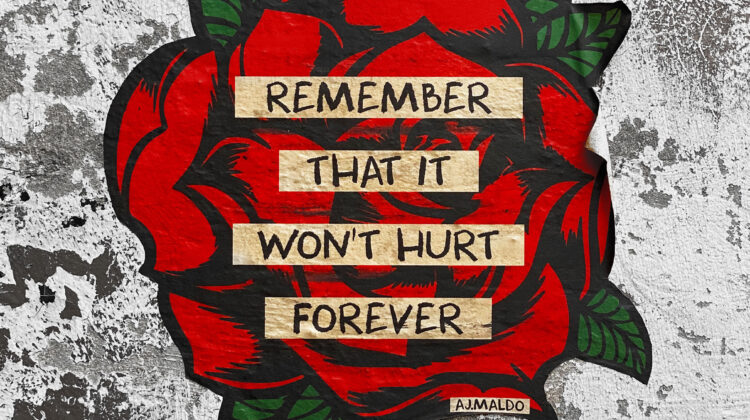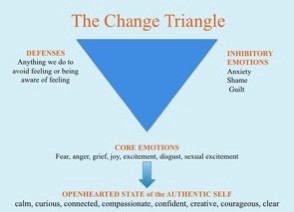
What are coping statements?
Coping statements are truthful positive statements used to replace the negative and untrue thoughts that take-over when you feel anxious, stressed, angry, and/or when facing other overwhelming situations.
“Remember that it won’t hurt forever” is a coping statement. Being a truthful statement counter-acts negative unhelpful thinking such as ” It always hurts me.” Or ” there is no hope, I will never get over this.”
How do coping statements work?
The purpose of coping statements is to put a stop to the thoughts that lead to anxiety and to replace those thoughts with realistic, rational thoughts. When these rational self-statements are practiced and learned, your brain takes over and they automatically occur. Thomas A. Richards, Ph.D., Psychologist
What are helpful coping statements?
In a recent post, I shared 101 Coping Statements I have collected. Going to this list, I have pulled thoughts and statements to use for specific issues. Here are the first ten:
- Stop, and breathe, I can do this
- This will pass
- I can be anxious/angry/sad and still deal with this
- I have done this before, and I can do it again
- This feels bad, it is a normal body reaction. It will pass
- This feels bad, and feelings are very often wrong
- These are just feelings, they will go away
- This won`t last forever
- Short-term pain for long-term gain
- I can feel bad and still choose to take a new and healthy direction
“I have done this before and I can do this again” was my go-to statement yesterday as I purchased 11 bundles of shingles and a roll of felt. My plan is to replace the old shingles on my outdoor storage shed. At Lowes, I was already using #9, “short-term pain for long-term gain.”
Having missed the past 8 months of strength training by not going to the gym, the bundles of shingles weighed much more than I had remembered. I had to lift them onto the flat and then from the flat to my truck bed. Once home, I lifted them from my truck bed to the floor of the shed. From there, I carried 6 of the bundles up my extension ladder and place them on the roof.
“Short-term pain for long-term gain.”
As I was unloading the supplies in front of the shed, a wave of magnification or catastrophizing washed over me. “This is a huge project.” “What was I thinking?” “I could fall off the ladder while carrying the bundles of shingles up to the roof.” “I should have called my brother and/or my brother-in-law to help.” “I’ll never get this done by myself.”
Using “I have done this before and can do it again” I set to work in spite of feeling overwhelmed and under-prepared. Several hours later, I was pleasantly surprised at my progress. And, I had not fallen off the roof. I felt much better than I was telling myself that I would. The bundles of shingles, while heavy, did not get the best of me. And the roof was covered knowing it was going to rain today.
In the end, I was prepared. Thinking otherwise was unhelpful. I pulled out my coping statement, which was something like, “I have spent months planning this, and I have it under control.” And I did!
What are unhelpful coping statements and actions?
What are unhealthy ways of coping with stress?
- Watching endless hours of TV.
- Withdrawing from friends or partners or, conversely jumping into a frenzied social life to avoid facing problems.
- Overeating or weight gain.
- Undereating or weight loss.
- Sleeping too much.
- Drinking too much alcohol.
- Lashing out at others in emotionally or physically violent outbursts.
For me, unhelpful coping statements are unhelpful thinking styles.
These were my go-to statements before I was hospitalized with MDD. I had all kinds of triggers that would send my mind racing headlong to these unhelpful ideas. I still use the list I was given in the hospital to help me identify unhelpful thinking styles.
From the hospital handout, here are 10 Unhelpful Thinking Styles:
- All or Nothing Thinking – Sometimes called “black and white thinking.”
- Mental Filter – Only paying attention to certain types of evidence.
- Jumping to Conclusions – There are two types; Mind-Reading (imagining we know what others are thinking) and Fortune-Telling (predicting the future).
- Emotional Reasoning – Assuming that because we feel a certain way, what we think must be true.
- Labeling – Assigning labels to ourselves or other people.
- Over-generalizing – Seeing a pattern based upon a single event or being overly broad in the conclusions we draw.
- Disqualifying the Positive – Discounting the good things that have happened or that you have done for some reason or another.
- Magnification (catastrophizing) & Minimizing – Blowing things out of proportion.
- Critical Words (should and must) – Using critical words like “should,” “must,” or “ought” can make us feel guilty or like we have already failed.
- Personalization – Blaming yourself or taking responsibility for something that wasn’t completely your fault. Conversely, blaming other people for something that was your fault.
Are unhelpful coping statements and actions really defenses?
Lately, I have been listening to the audiobook, It’s Not Always Depression, by Hillary Jacobs Hendel. In it, she explores the change triangle. Last year, my therapist was using this as we worked together. Changing therapists due to insurance issues, I didn’t explore the idea further. Recently, I came across the audiobook as I was taking advantage of my monthly quota of downloads from Audible. After hearing the entire book, I had a much clearer idea of how and why my therapist was attracted to the concept.
This led to my leaving the therapist my insurance was paying for because she was in-network. I am back with John, and even though I am paying out of pocket for his services, I am getting so much more out of the sessions. And we are using the change triangle as the basis for our work.
I am finding that my unhelpful coping statements are DEFENSES.
These are things I do (or say) that help me avoid my core emotions. As I learn more, I am finding that defenses are anything we do (or say) to avoid feeling core or inhibitory emotions. Just like unhelpful coping statements, there is an infinite number of defenses. Working too much is one. I admit this has been something I have done since I was ten years old. I have worked continuously for 54 years.
Don’t tell anyone, but I was supposed to be ten years old to land the job as a paperboy for a weekly newspaper, but I fibbed, stating I was ten. In reality, I was nine years and ten months. I justified this by thinking about how mature I was. And I really wanted the job. Having a weekly income allowed me to fund my hobby, building, and launching model rockets.
The importance of coping statements
I came across 8 Ways to Stay Calm During a Crisis, by Jacqueline Whitmore Author, Business Etiquette Expert, and Founder of The Protocol School of Palm Beach.
- Slow down. If possible, don’t react immediately. …
- Stay positive. When stressful situations occur, your mind may go in a thousand directions and some of your thoughts may be negative. …
- Never ask “what if?” …
- Take care of your body. …
- Limit caffeine. …
- Call a trusted friend or mentor. …
- Disconnect. …
- Develop a coping strategy.
Here #8 and #2 reinforce the importance of coping statements.
Or reinforces my contention that remaining positive while using coping statements is a way to stay clear of the abyss. And I have seen the dreaded abyss up close and personal. And I have also seen its cousin, “up against the wall” and its brother “circling the drain.”
The US National Library of Medicine and National Institutes of Health published a study on the Effects of coping statements on experimental pain in chronic pain patients. In the study:
participants were instructed to verbalize and repeat the coping strategy they selected aloud throughout the test phase, therefore, ensuring participants were at least partially cognitively engaging in the particular strategy (via awareness and verbalization). As previous findings in cognitive behavior therapy research suggest, it is a plausible explanation that participants’ expectations for pain relief or the ability to endure pain changed as a function of the manipulation of coping.
The present study measured the effects of catastrophizing self-statements and positive coping self-statements on cold pressor-induced pain.
The author of the study cited 39 additional studies of a similar nature, all centering around the use of positive coping statements and more positive outcomes for patients with an array of issues.
For me. having a tool I can call up at a moment’s notice to thwart these lies, has been so reassuring and helpful. My inner voice is not always on my side. With depression spurring me on, I can hear the lies it spews out as the gospel truth. And soon my hair is on fire and I am dancing around the room screaming, “the sky is falling.”
Your inner voice sometimes lies to you, and those lies can provoke powerful anxiety, anger, depression, panic, and pain.
Depression makes it seem so real. But then, I take a deep breath and begin to ask questions. “Is this true?” “Will I” for example “never finish reshingling the shed?” And the answer is of course I will finish. “I have done this before and I can do it again.”
Using coping statements to stay calm

Verbalizing your coping statements can help you calm down and stay in control. They offer reassurance that you can make it through any difficult period.
Thomas A. Richards, Ph.D., Psychologist, says “put a stop to the thoughts that lead to anxiety, and replace those thoughts with realistic, rational thoughts.”
First, use thought stoppage. Be gentle but firm about it.
“STOP! These thoughts are not good for me. They are not healthy or helpful thoughts, and I have decided to move in a better direction and learn to think differently.”
With practice, you can turn unhelpful thinking into positive coping statements almost without thinking. When I first became aware of how my mind was always going toward negative thinking, I began to notice these thoughts. The very idea that I was recognizing these thoughts, occasionally in real-time, was a breakthrough for me. With 17 months of practice, I am sometimes catching these thoughts before I say them out loud.
How I use helpful coping statements
Understanding that my depression loves to share negative self-talk with me got me collecting coping statements. These help me expose the flawed thinking in these unhelpful thinking styles and prepare me to combat them. I get to choose how I think about situations, even those shared by depression. And while I know I cannot control events, I can control what I think about them. And I can control how I frame my thoughts.
The global Pandemic has been killing humans for over 8 months now, and the efforts countries have made to defeat the coronavirus have not been entirely effective. I can allow this to invade my head and send me into a frenzy of worry and hypochondria. Or I can use helpful coping statements to frame my life and the steps I take to live safely. “I wash my hands, I wear a mask, I control where I go.”
These are a part of my way of dealing with the pandemic.
I invited some of my family over for the Fourth of July. We all stayed outside, sat in lawn chairs 6 feet apart, and roasted hot dogs over the fire pit. We had single-use paper towels and sanitizer in the bathroom, and only 1 person at a time was inside.
Instead of fearing the worst and not having anyone share in the holiday, I framed my thoughts as “we are prepared.” “We may not be able to meet around the dining room table in the air conditioning, but the 10 of us can safely share the holiday outside.”
And we did.
Helpful coping statements have been a starting point for my recovery. They are an important tool for my leading a balanced life with anxiety and depression. Even today, there are many areas of my life where unhelpful thinking pops up. Now I recognize it for what it is and can counteract it with a positive coping statement.








Leave a Reply